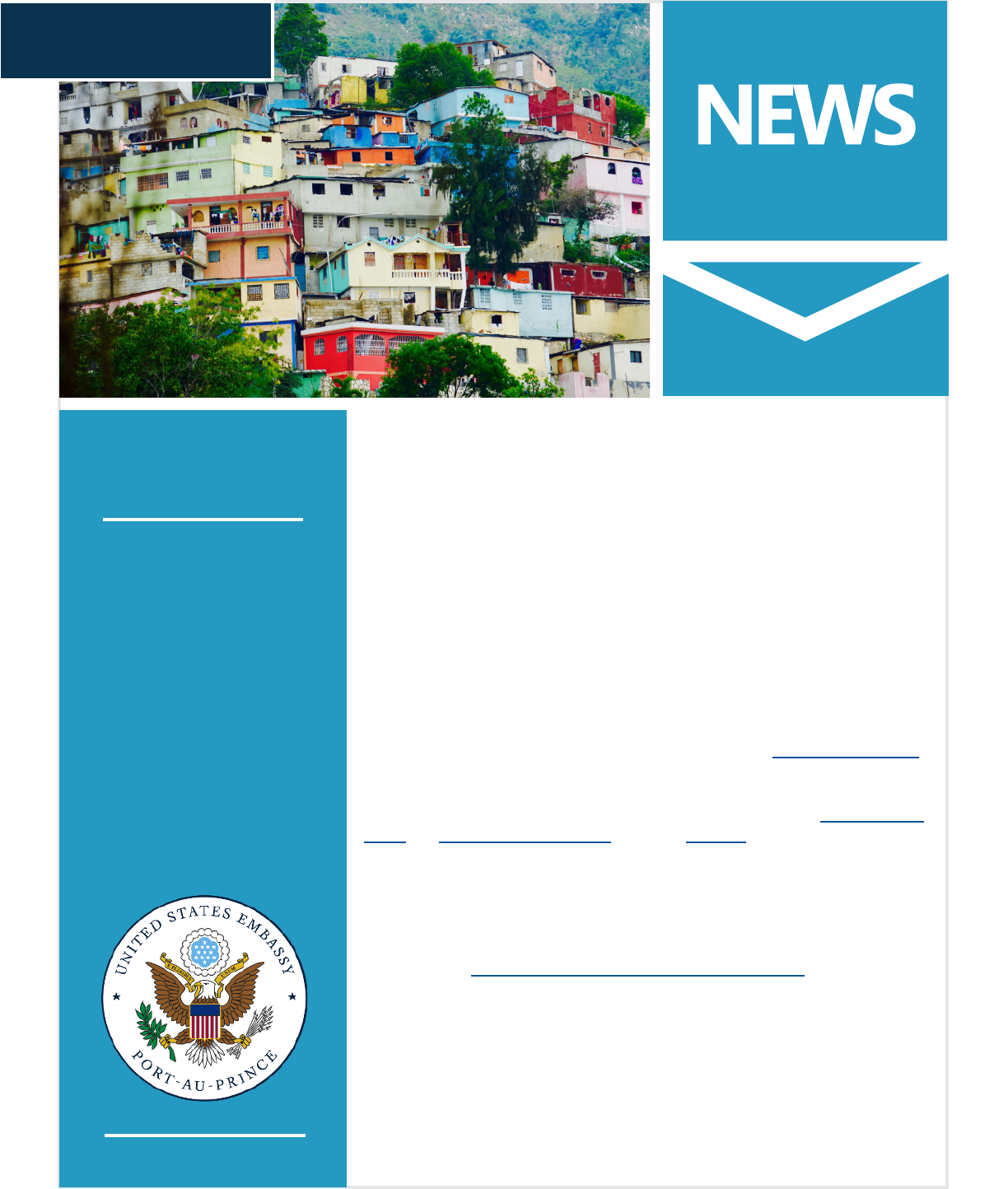
CONSULAR
LETTER
April 2022
Hello everyone,
I’m Doni Phillips, the Deputy Consul General at the U.S. Embassy in
Port-au-Prince.
Scammers often take advantage of individuals and families by
promising them visas, especially as many anticipate summer travel
plans. Often these scenarios have individuals or families pay lots of
money only to find out later that they are a victim of fraud. This sort
of scam is unfortunately common and recurring, but it can be
avoided. I hope you read the “Ask the Consul” section which
includes great information and guidance to avoid such scams.
Always remember that the U.S. Embassy will never ask you to pay
outside of official channels and you can double-check the fee
amounts for visa and citizenship services on our Embassy website.
The Embassy has a great series of videos with tips to avoid
scams. Here are three that are especially relevant: 1) Moun kap fe
raket; 2) Sou peman pou viza; and, 3) Rakete. If you or
someone you know are looking to apply for a visa, U.S. passport, or
are seeking another Embassy service, please share these
resources.
Next, the CDC has just lowered its COVID-19 Travel Health Notice
for Haiti to a Level 1: Low Level of COVID-19 in Haiti. This does not
change current travel requirements, and the CDC recommends that
all travelers are fully vaccinated. This health notice is different than
the State Department’s Travel Advisory for Haiti, which is still at its
highest rating: “Level 4: Do Not Travel” due to kidnapping, crime,
and civil unrest.
Doni Phillips
Deputy Consul General
Inside:
• Cover Message
• Ask the Consul
• This Month
• Health
Resources
• Travel &
Security
• Contact Info
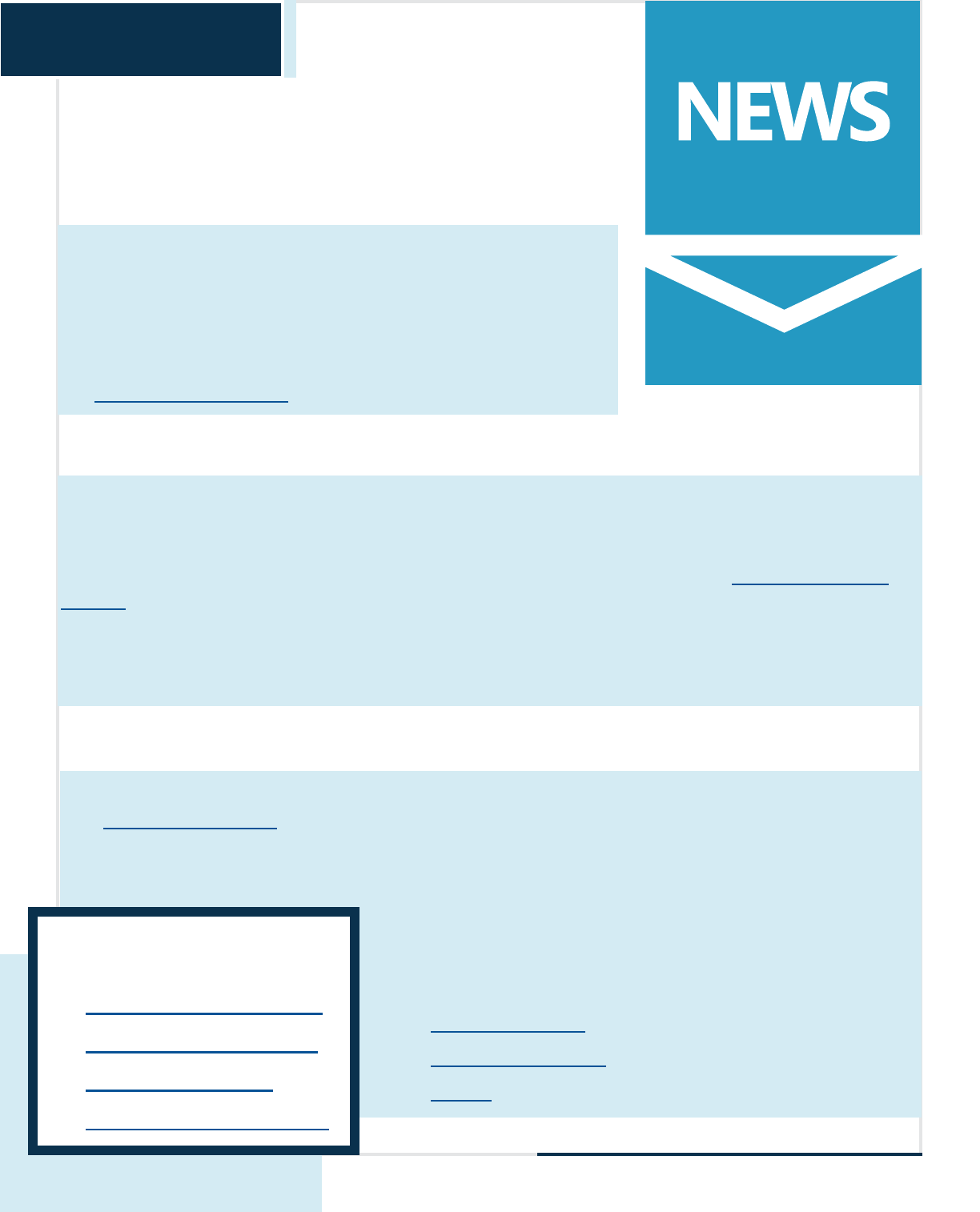
2
Ask the Consul
This month, we’re providing more information on fraud prevention
tips and resources to make sure you do not fall for scams.
Q
: What can I do to ensure my Embassy appointment goes smoothly?
A
: Come to your interview prepared with your complete application and genuine, original
documents. Be wary of people who promise to obtain documents quickly—you can get birth,
marriage, divorce, and death extracts from SogeExpress and UniTransfer in Haiti. Presenting
fraudulent documents could result in a permanent ineligibility. Please read the instructions on our
website carefully and only trust information from U.S. Embassy sources.
Keep in mind that the purpose of the interview is to simply determine whether you meet the
requirements for a visa or citizenship document. Remain calm, listen to the questions carefully, and
answer all questions honestly.
Q
: I think I may be a victim of fraud. What should I do?
A
: If you are a victim of U.S. passport or visa fraud, please report the problem to
[email protected]. When reporting fraud, be sure to include as much information as
possible. If you have information that will help us protect the integrity of the visa and U.S.
citizenship process, please let us know. Your information will be considered anonymous and
treated as strictly confidential.
The U.S. Embassy has some helpful videos, all in Creole,
with tips to avoid common scams:
• Moun kap fe raket
• Sou peman pou viza
• Rakete
Useful Links
• State Dept. Fraud Tips
• Video: Visa Payments
• Video: Scammers
CONSULAR
LETTER
Q
: A “visa consultant” has offered to help me improve my
chances of getting a U.S. visa. What should I do?
A
: Remember that only consular officers make decisions on
visa applications. No one else can guarantee the issuance
of a visa to you. Beware of individuals or businesses who say
they can obtain a visa or a passport for you — they may actually
hurt your chances of getting a visa. All U.S. government forms
are free and the fees you should expect to pay can be found on
the Embassy website here.
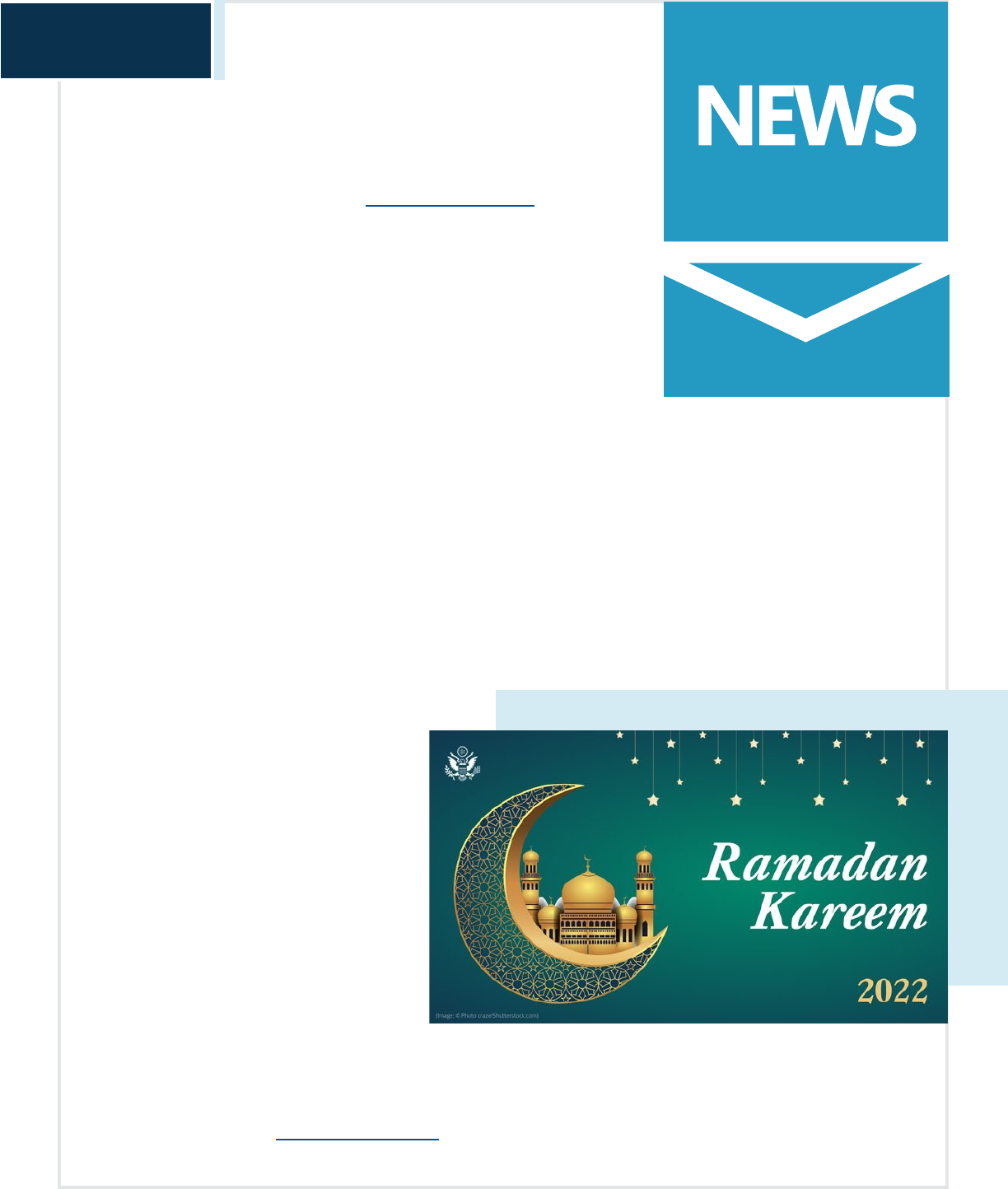
3
This Month
April is National Arab American Heritage Month. The U.S.
Secretary of State Antony Blinken shared a statement:
“This month, we recognize National Arab American
Heritage Month and honor the contributions of this diverse
community to America. Immigrants with origins from the Arab
world have been arriving to the United States since before our
country’s independence and have contributed to our nation’s
advancements in science, business, technology, foreign policy, and
national security. The litany is long and includes Private Nathan
Badeen, a Syrian immigrant who fought and gave his life during the
American Revolution.
“At the State Department, we recognize tremendous diplomats such as Ambassador Philip Habib,
former Under Secretary for Political Affairs, who played a prominent role in the Vietnam peace talks
resulting in the 1973 Paris Peace Accords and later successfully pursued a ceasefire in Lebanon.
We also recognize Ambassador Selwa “Lucky” Roosevelt, who served the President and Secretary
of State as the Chief of Protocol of the United States from 1982-1989, nearly seven years and
longer than anyone else prior. The Department is fortunate to have had these and so many other
talented Arab American colleagues, who strive every day to protect and promote the interests and
values of the American people, while representing the United States to the world.”
Naonal Arab American Heritage Month
CONSULAR
LETTER
Ramadan
Ramadan began around Saturday April 2
and is expected to end approximately on
Sunday, May 1.
President Joseph Biden said, “Jill and I
extend our best wishes to Muslim
communities here in the United States
and around the world… For so many
around the globe, including fellow Ameri-
cans all across the country, this sacred
month is a time for reflection and spiritual growth. Communities come together to
practice forgiveness and resilience, to show compassion and generosity of spirit to those in need,
of giving, and to celebrate the many blessings of life with loved ones.”
Read President Biden’s full statement here.
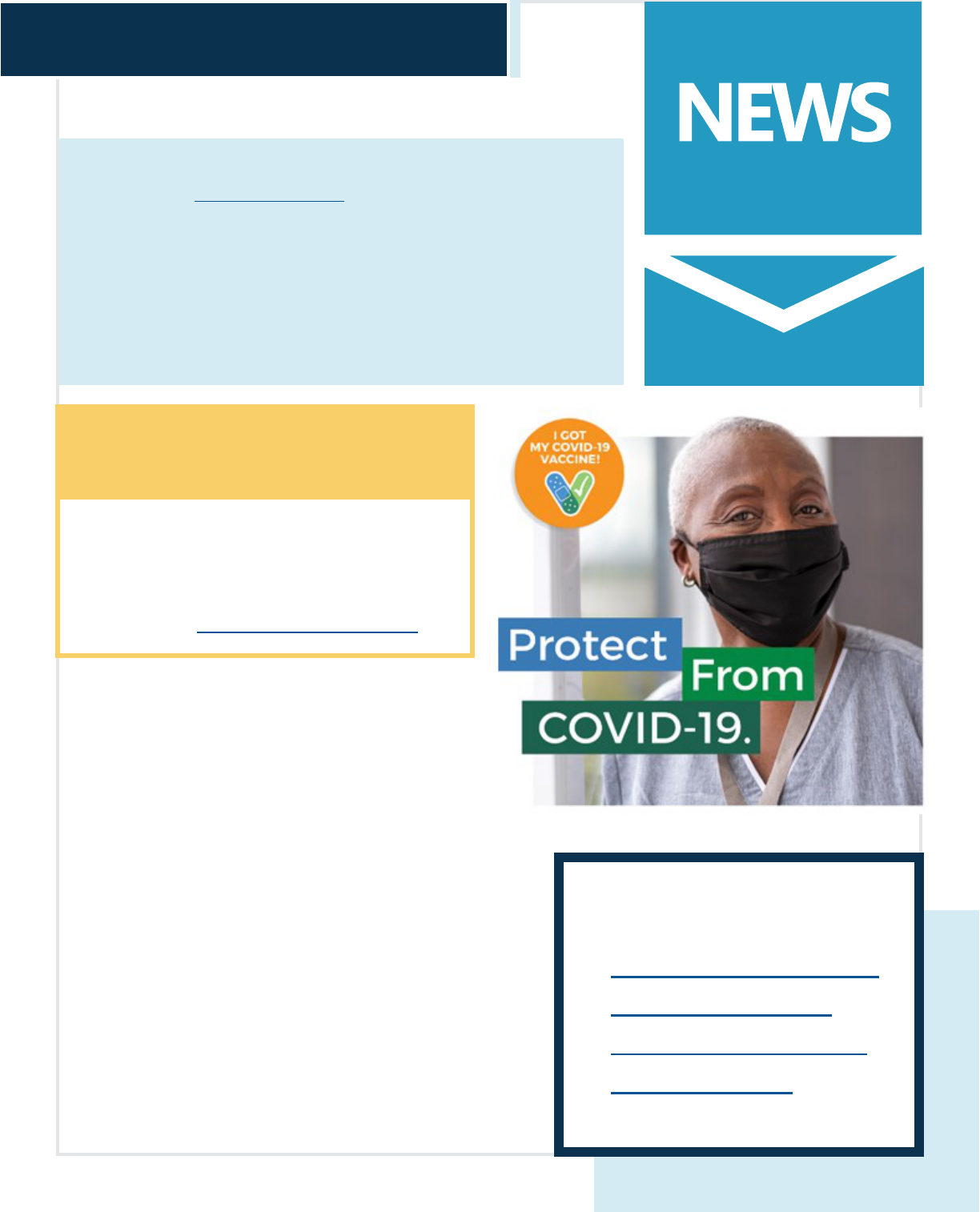
4
CONSULAR
LETTER
Health Resources & COVID-19
Useful Links
• Embassy COVID-19 Page
• Travel Requirements
• Air Ambulance Services
• Hospitals in Haiti
Make sure you are vaccinated and up to date
with your COVID-19 vaccines before traveling
to Haiti. Anyone 2 years or older should
properly wear a well-fitting mask in indoor
public spaces. Learn more from the CDC.
Haiti—Level 1:
Low Level of COVID-19
• Make sure you are current on your vaccines,
including tetanus and rabies.
• Know where doctors and the closest emergency
room are in your area. Please visit the Embassy
website for a list of hospitals and medical
professionals in Haiti.
• Always keep basic medications and supplies on
hand. Invest in a quality first aid kit and keep one
in your car and at home.
• Always have medical insurance, including
medevac insurance. If you need to be medically
evacuated out of Haiti, you should contact a
medevac company or an air ambulance service.
Visit the Embassy website for a list of Air
Ambulance Services.
General Health Guidance
CONSULAR
LETTER
COVID-19
For updated information about COVID-19 in Haiti,
please visit the Embassy website. You’ll find information about:
• Where to get vaccinated
• Where to get tested
• Entry/exit requirements
• Quarantine guidelines
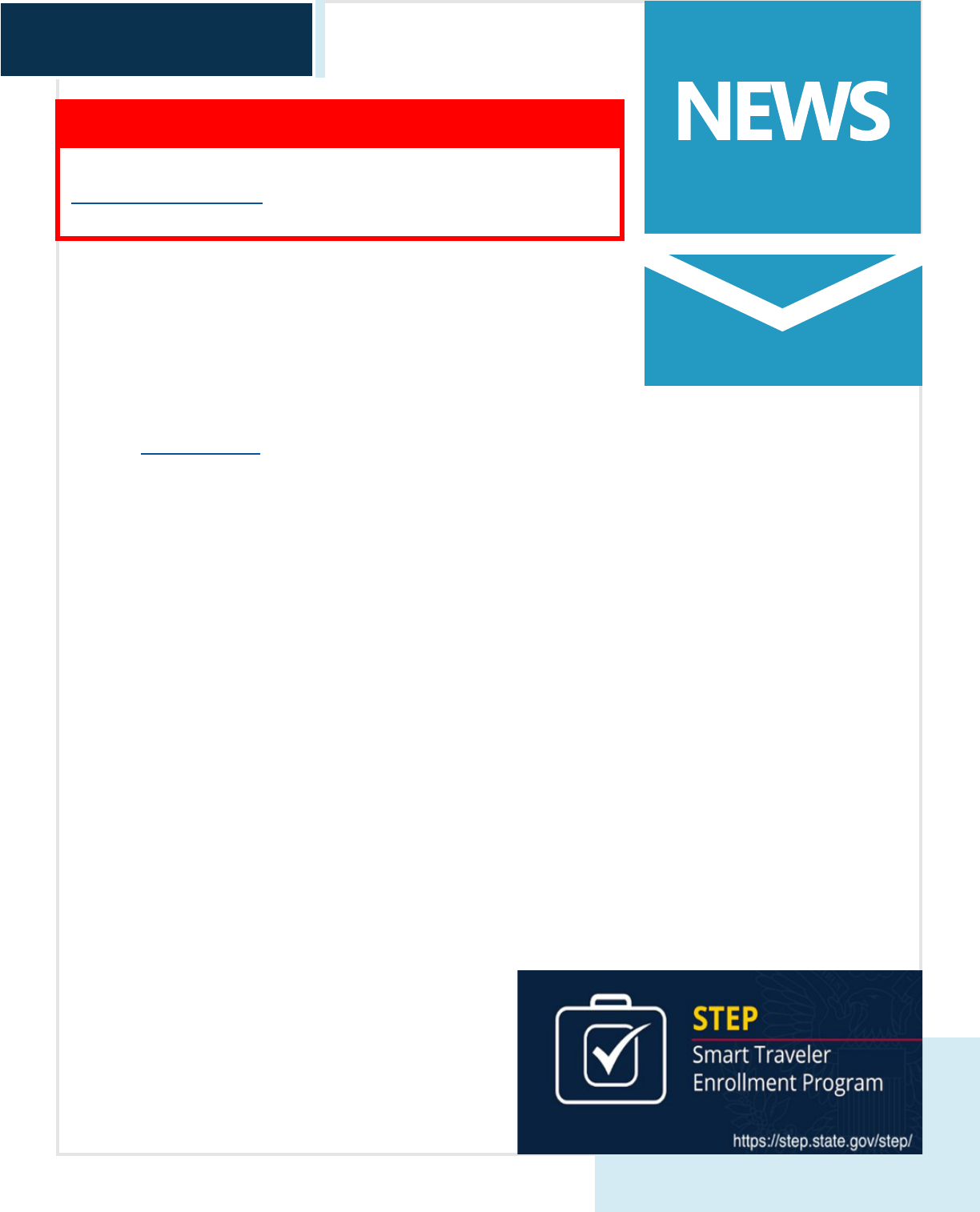
5
CONSULAR
LETTER
CONSULAR
LETTER
Travel & Security
The U.S. Department of State has renewed the highest level
“Level 4: Do Not Travel” travel advisory for Haiti due to
kidnapping, crime, and civil unrest.
Haiti—Level 4: Do Not Travel
If you are in Hai:
• Sign-up for the Smart Traveler Enrollment
Program (STEP) to receive important
information from the Embassy about safety
conditions in Haiti, and help the Embassy
contact you in case of emergency. Enroll
here: step.state.gov
• Remember that demonstrations, tire
burning, and roadblocks are frequent,
unpredictable, and can turn violent at any
time. Emergency response, including
ambulance service, is limited or non-
existent.
• Always carry your cellphone and ensure it is
charged before you travel. Ensure you have
important numbers programmed into your
phone. Consider using code names for
family or friends.
• Avoid demonstrations and crowds. If you
encounter a roadblock, turn around and get
to a safe area.
• Arrange airport transfers and hotels in
advance, or have your host meet you upon
arrival.
• Travel by vehicle to minimize walking in
public, and travel in groups of at least two
people whenever possible.
• Always keep vehicle doors and windows
locked with valuables out of sight.
• Exercise caution and alertness, especially
when driving through markets and other
traffic-congested areas.
• Do not travel in areas unfamiliar to you and
be aware that navigation apps are highly
unreliable in Haiti.
• Do not physically resist any robbery or
kidnapping attempt.
• Always make sure your vehicle is in good
driving condition.
• Travel at times when traffic is expected to be
lighter; avoid travel after dark in Port-au-
Prince.
• Ensure adequate spacing between vehicles
to provide options for evading a potentially
dangerous situation.
• Patronize shops or restaurants that provide
secure, enclosed, and well-lit parking.
• Always inform someone, such as a family
member or friend, of where you are going
and what time you expect to return.
• Minimize broadly publishing your travel
plans on social media.
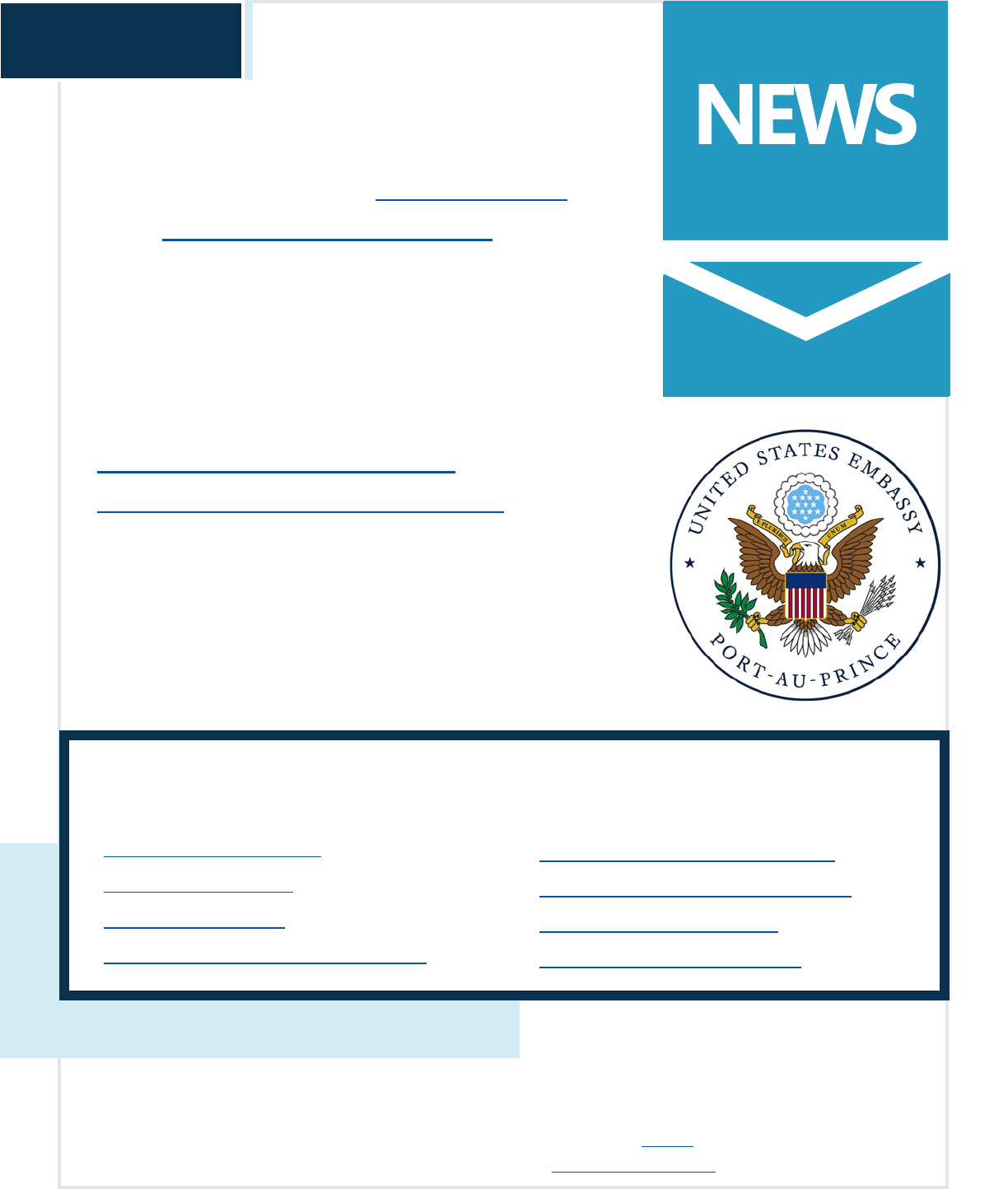
6
CONSULAR
LETTER
CONSULAR
LETTER
Contact Info
This newsletter is published by the Consular Section of the U.S. Embassy in Port-au-Prince. Please
pass this newsletter along to other interested people. If you would like to receive your own copy
directly, sign up through the Smart Traveler Enrollment Program (STEP). Comments and
suggestions regarding this newsletter are welcomed at [email protected].
Address
U.S. Embassy Port-au-Prince
Boulevard 15 Octobre
Tabarre 41, Route de Tabarre, Port-au-Prince, Haiti
Email
• American Citizen Services: acspap@state.gov
• Visas: support-haiti@ustraveldocs.com
Phone
+509-2229-8000
Websites
• American Citizen Services Website
• U.S. Embassy Port-au-Prince’s Website
• U.S. Embassy Facebook
• U.S. Embassy Twitter
• Haiti Travel Advisory
• American Citizen Services Facebook
• American Citizen Services Twitter
• Smart Traveler Enrollment Program
• Make an ACS Appointment
• COVID-19 Information in Haiti
Useful Links
